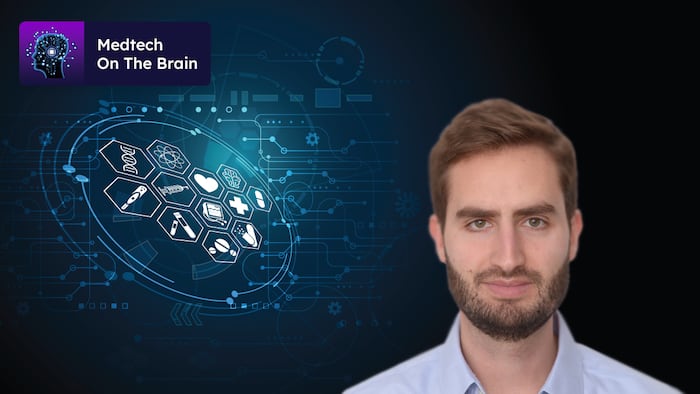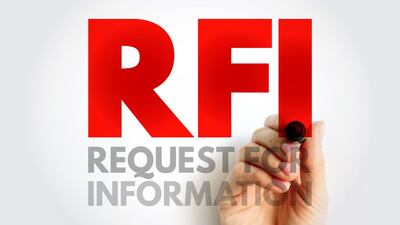Medtech Insight is honoring May and June awareness months for mental health, Alzheimer’s and brain health by speaking with industry leaders about rising innovations to address neurological diseases and mental health, the regulatory and investment climate, reimbursement, and more.
The digital health space has seen exciting innovations in recent years, particularly in the area of mental health with new apps to diagnose and treat conditions from addiction to autism.
But these breakthroughs are posing new challenges for regulators. We talked to David McMullen, director of the Office of Neurological and Physical Medicine Devices within the Center for Devices and Radiological Health at the US Food and Drug Administration, about these growing challenges.
Medtech Insight: In general terms, can you talk a little bit about the role digital health can play in diagnosing and treating mental health conditions?
David McMullen: I really think that digital health tools, writ large, have tremendous potential in the mental health space. This is an area that has such dire need. We're all aware of the significant burden, the opioid epidemic, suicide epidemic and unfortunate rise in teen mental health has had on Americans and, while we do have proven effective therapies out there, whether they be drug, device, or behavioral, there's a lack of access for many people who are in need.
Digital mental health diagnostics or therapeutics hold the potential to fill that gap and really provide potential therapy for patients. It's really just about proving that new treatments that come to the market can demonstrate that they're safe and effective so that patients are able to choose effective treatments.
You mentioned several ongoing concerns, like the opioid epidemic and teen mental health. What are some of the devices that have been recently cleared to treat or diagnose those conditions?
There's a wide array of conditions that can benefit from digital health tools. On the diagnostic side, there's been digital diagnostic aids for autism spectrum disorder that have been cleared, such as Cognoa. There have been two apps cleared for depression, the Rejoyn app and MamaLift Plus for postpartum depression, and there's a wider pipeline of devices in development.
A lot of the apps I've seen use the cognitive behavioral therapy (CBT) approach. Can you talk a little bit about how that helps patients and how we know it's effective when it comes from a device, as opposed to when it comes from a human therapist?
Cognitive behavioral therapy is one of the most well-established behavioral interventions available to patients. To be clear, the FDA does not regulate behavioral psychotherapy. But it is one of the tools in the wider space.
And again, when we talked about access, there's the idea that if you can take the effective components of something like CBT and put it in a package that can be scaled to more patients who need it, that can really fill that gap. But that's why our approach is that companies come, and they test things out for clinical validation. It’s not just, ‘We have a great behavioral therapy, and we put it in an app, please use it.’ It's actually gone through the process of ensuring that that implementation in the app form is also effective, because that's not a given. The proof is ultimately in the clinical evidence that they're able to generate.
What is the FDA doing to encourage innovation in the digital health sector?
It's a really exciting space, and the FDA has several programs that are meant to help foster that innovation. The most salient [ones] are actually linked. The breakthrough device program was created several years ago, and it enabled companies that got a breakthrough device and destination earlier to have more frequent interactions with the FDA. And so that was one initial step to fostering innovation. And on the other side, there's a newer program called [the Total Product Life Cycle Advisory Program] TAP, which is almost breakthrough on steroids. It provides even more frequent interaction with the FDA, but also brings in all the other stakeholders in the ecosystem, because we understand that just because you get an FDA stamp of approval unfortunately doesn’t mean patients can have access the next day. There's a whole wide medical device ecosystem. There are patients, there's providers, there's payers, there's professional societies.
And so TAP tries to bring in voices from those various stakeholders earlier into the process, so that when companies are thinking through their evidence development plan, part of which is conducting clinical trials, they can make decisions based off of their understanding of what everyone's looking for. It's really trying to take that timeline from the device starting off to actually getting into the patient's hands and shorten it, when possible, by having everyone's voices earlier, as opposed to one at a time.
I just want to highlight that it's a more active interactive type of process. The office I lead is one of the two offices in the pilot program. We’re all still learning and we're still working with the community, the companies and the stakeholders to ensure we're working on getting devices to the market.
When manufacturers are getting ready to submit a mental health device, whether they're going through TAP or pursuing a traditional pathway, what are the important things for them to keep in mind?
I would say the most important thing is to come in and talk to us and the formal process for that is the pre-submission process. You can come in, ask a focused set of questions and that will allow reviewers to interact and talk through that. It gives them a chance to understand what your technology is and what unique considerations there might be, so that when you do decide to go the next step – let's say a larger clinical trial – we can hopefully de-risk it together by having these conversations earlier in the process so that everyone's on the same page with the trial, the endpoints, the timeline, as opposed to it being a surprise when everything shows up.
The neurology device office looks at physical devices, like brain implants to treat aneurysms, as well as digital devices that treat mental conditions like postpartum depression. Can you talk a little bit about how the regulatory approach between mental health conditions and physical conditions differs?
We operate under the same regulations for both, so it's the same regulatory approach. But how we apply our benefit-risk approach to each type of device area is unique in its own way.
For this area, it's really about understanding the power of these tools and the uniqueness in terms of how users interact with them.
The risk might be non-traditional. You're not going to have bleeding or infection that can come with implanting a deep brain stimulator. But there might be other risks involved with these tools that we also want to make sure we understand. The risks of cybersecurity would be a key component.
Now, obviously, there are implantable devices and non-invasive devices that are also digitally connected. But these [mental health apps] are often delivered directly through a smartphone, so their very nature is that they are very connected. So part of our job is making sure that those considerations are there and the data security component is taken care of as well.
I did some quick browsing of the app store while I was getting ready for this interview, and there are a lot of apps that say they offer therapy or help people reduce anxiety that are not FDA approved. It’s not necessarily a regulatory problem, because they keep their claims just shy of what would be under the FDA’s jurisdiction. But do you see it as a problem for consumers?
The FDA exercises enforcement discretion in this space. And as you’re highlighting, there are some devices that fall under the general wellness space. We recognize that, in general, most of these devices are lower risk. Something that provides you a tip of the day maybe doesn't need direct hands-on FDA oversight but can exist in that space. We're really trying to focus our efforts on the apps and devices that are for high-risk patient populations or ones that really want to make strong claims and back those up. I think it would be helpful if the public understands that there's the apps that FDA does regulate, and those are fewer in number and in a different paradigm, as well as more costly.
What's something you'd like the medical device industry to take away from this interview?
I would just emphasize, please reach out to us, work with us. The formal processes, the pre-submission process, you can come in early with an informational meeting, show us your latest and greatest new technology. We'd love to think about it with you. There are sometimes complex regulatory questions, especially as you go into new areas, such as AI, and then we can hopefully work together to develop the device development pathway.
I came from the National Institute of Mental Health (NIMH) before I came to FDA, and there's been a lot of excitement about the potential in this space. We understand that there's still a ways to go, but hopefully, with the entire ecosystem working together, we can create a sustainable pathway for these devices to be created, evaluated, and actually used in the community.







